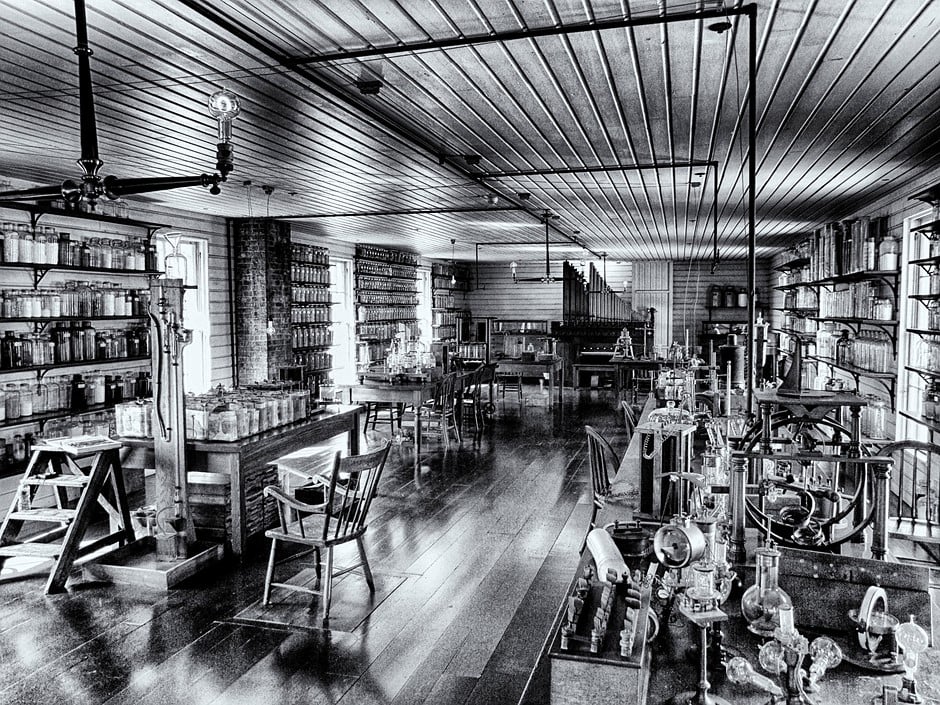Research - Hero In The Garage Can’t Do It Anymore
We are in trouble and nowhere is the situation more critical than in research. We have always prided ourselves in our ability to innovate and our systems that support it. We love to pat ourselves on the back with each milestone even if “we” had nothing to do with it. We brag about our failures and how our innovators overcame obstacles, many of which came from our indifference, taking their work for granted.
The climate is one of several existential challenges we need to overcome this century as the world fills up with 10 billion people and the hero in the garage can’t do it anymore. We are oblivious to the needs of research, the engine of innovation, the driver of progress. It works quietly in labs, engineering centers and workshops.
The researcher’s work is hard to understand, and the time frames are in years/decades so it’s hard-to-find urgency in the noise of the latest social media “crisis”. We obsess about the symptoms and human tragedies in today’s news while assuming tomorrow’s disasters will take care of themselves.
Someone else is worrying about those right? If the facts are unpleasant and action requires change/sacrifice, then invent new facts, it’s so much easier!
There are a lot of things wrong with this situation, so we decided to apply our skills to finding ways to help those that are doing the real work.
"WE ARE IN TROUBLE AND NOWHERE IS THE SITUATION
MORE CRITICAL THAN IN RESEARCH."
Intelligence solutions are built to find, analyze and deliver insight to decision makers. Once problems are identified, some of those require completely new discoveries, new innovations, and those innovations require research and advanced engineering done by people smarter than us. We can either help or get out of the way.
It’s a simple choice. We have never needed the human capacity for innovation more than we do today, and the stakes have never been higher.
We need to design a better solution for research. Design and the principles of empowered product teams need to be applied to research. We have the smart people. We need smarter, faster teams. This is a solutions problem.
We need to accelerate the rate of technology development and adoption across all domains. Research, the word innovation is overused, needs to be viewed as a process, not siloed in a company, a university, a country or domain. We need the best ideas fast and we need them implemented worldwide even faster. We need the best researchers working in faster ecosystems, not better influencers. Traditional paradigms don’t cut it anymore given the volume and velocity of new research and the stakes involved. We are dependent on these researchers, and we need to give them better tools.
An integrated and contextual approach for researchers and engineers doing advanced development must address the following:
- Acquisition – research is worldwide in many languages and publicly available intelligence is a critical component that must complement proprietary repositories.
- Access – research is collaborative, within organizations, within domains and worldwide. How do you find/repurpose that which has already been discovered, to build on society’s work.
- Curation – research happens over years accumulating in the researchers’ brain, their hard drive and their organizations' files resulting in the challenge of efficiently finding relevant research at the time it's needed.
- Scale – thousands, if not millions, of papers are produced annually in every domain in every country. Scale is an advantage if harnessed, but can also be buried in disinformation.
- Advanced Analytics – AI and advanced analytics can enrich and extract metadata, while providing intelligence of its own, ultimately serving as the guide to critical insight but never a substitute for domain expertise.
- Communications – no idea is worth anything if it isn’t communicated. Communication drives collaboration, testing, peer review and deployment within the ecosystems that need it.
Ground truth must be built and maintained throughout every step in the process. It is no longer possible to “burn the haystack” to find the needle. Trust needs to be the foundation. As an example, take a look at our recent video that uses Trust Builder to curate, link and draft a paper with the help of ChatGPT.
Identification of the problems to be worked on is a crucial first step. This starts in the universities when brilliant minds pick the problems they want to solve. Too many of our brilliant minds are tweaking advertising and financial trading algorithms.
Ecosystems must be created and maintained to nurture new innovations as the value is recognized. Those with the needs must be matched with those who have the innovations.
Contracting, funding and supporting research must be streamlined. Traditional methodologies are slow, sloppy, proprietary and rigged. Innovators must be encouraged and protected but not at the expense of the public good.
Tell us your thoughts? Let’s get to work.
Banner Image credited to: https://www.dpreview.com/forums/thread/4517051


